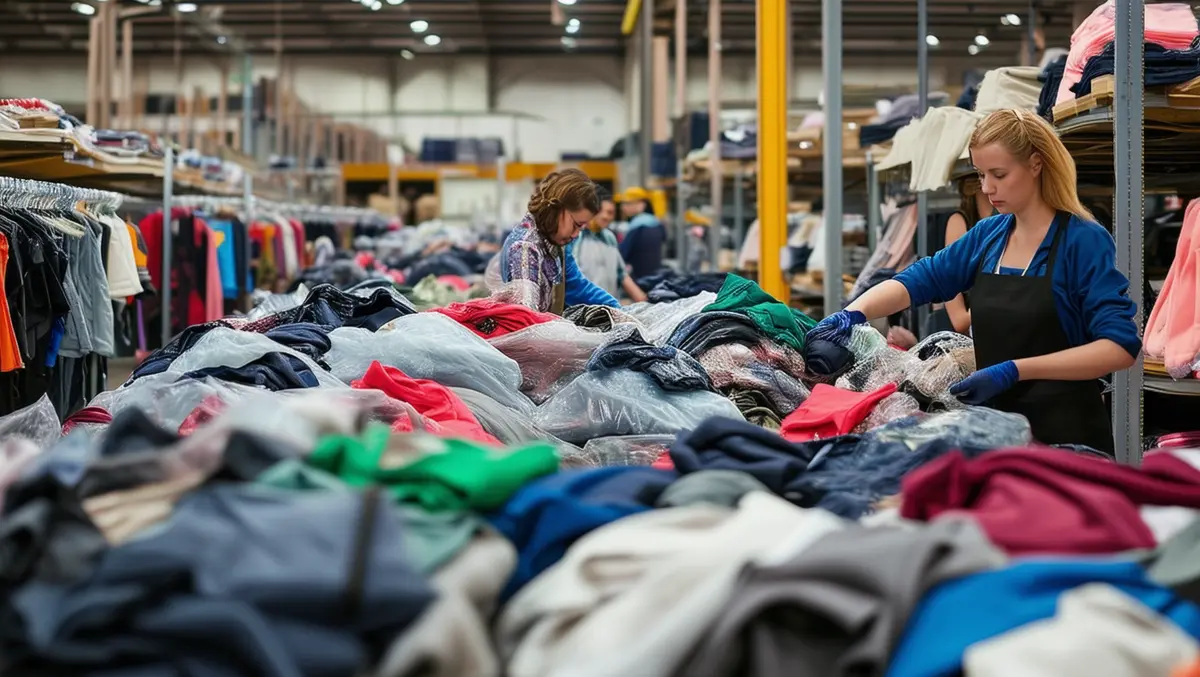
Fashion retailers face return cost & sustainability pressures
Recent findings by consumer group Which? reveal that more than half of the largest online fashion retailers do not offer free postal returns. This move by retailers is seen as a strategy to manage two significant challenges: operational costs and the increasing issue of 'serial returners'.
Gary Winter, Vice President of Global Strategic Initiatives at postal expert Quadient, commented on the issue: "Retailers are charging for returns to get on top of two big problems. First and foremost, returns drive up prices retailers charge – with everything from unpacking items in warehouses to inspecting and getting back on the shelf costing GBP £20 on average. These costs really add up for retailers, so in turn, the price each of us pays will continue to climb."
He further noted the often overlooked but impactful 'ick factor' of returns. "While Which? rightly highlights the environmental impact of returns, retailers are also trying to limit the returns 'ick factor'. Some items you buy may have been tried on by five people before you, which is not very nice to think about. Charging serial returners will help to press the reset button; then retailers can focus on making e-commerce and returns better for the majority, keeping a lid on prices and making returns the smoothest experience possible, such as offering convenient parcel locker drop offs."
Dean Standing, Chief Customer Officer at data consultancy Sagacity, echoed the sentiment by emphasising the financial and sustainability pressures on retailers. "The buy-and-bail habits of serial returners have driven up the cost to serve for retailers over the past few years, especially as online shopping surged during the pandemic. New order and return habits are here to stay, so retailers must recoup rising operational costs to remain profitable, as well as tackle sustainability issues," he said.
Standing highlighted the critical decision facing retailers: "Retailers face a crucial choice: end the free ride for everyone, or take it as a chance to build loyalty by rewarding valuable customers with free shipping and returns. Clear communication is vital – changing policies midstream could damage relationships, as we see with the PrettyLittleThing and BooHoo case studies in the research. Setting the right costs must also be considered to avoid losing customers who have less cash to splash." He posited that a data-driven approach is essential: "Making an informed decision requires retailers joining the dots between customer information and returns history to understand how common returns actually are, which demographics are most likely to return, and how to tactically set up a returns policy that improves the bottom line."
In separate but related research, a report by ethical fashion not-for-profit Collective Fashion Justice found that less than 4% of British Fashion Council member designers and brands have a published climate target, compared to 44% of all UK businesses. This discrepancy is increasingly highlighted as London Fashion Week approaches, placing additional pressure on fashion brands to publish science-based targets aligned to the Paris Agreement.
Vishal Patel, Vice President of Product at supply chain expert Ivalua, explained how brands can better track their carbon emissions and meet sustainability requirements. "The pressure is on fashion brands to implement and track sustainable practices across the clothing production process, from converting raw materials in factories to finished products on the shop floor. Fashion brands could be dealing with as many as 50,000 suppliers across hundreds of different regions, making it extremely difficult to accurately track their suppliers' green practices and near impossible to track beyond tier 1 and 2 suppliers," stated Patel.
He emphasised the importance of understanding Scope 3 emissions: "Many struggle to gain visibility into Scope 3 emissions, which on average are responsible for around 75% of an organisation's total emissions. To help keep track of emissions and hit ESG targets, fashion brands need to take a smarter approach to procurement to carefully select suppliers, effectively assess their environmental impact, and identify opportunities to work with suppliers to meet sustainability requirements."
Patel suggested the need for enhanced visibility and collaboration within supply chains: "By investing in tools that facilitate strategic collaboration with suppliers, fashion houses can verify actual product emissions, define improvement plans to reduce emissions, and accurately track and report progress."
Both the insights from postal and supply chain experts underscore the complex, multi-faceted challenges fashion retailers face in balancing cost, customer satisfaction, and sustainability. As the industry grapples with these issues, consumers may see continued adjustments in return policies and environmental commitments.


